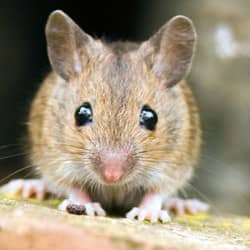Fall in Nashville is the most breathtaking time of year. The roads are lined with vibrant oranges and vivid yellows. The sunsets make the countryside a golden amber. And the air has a slight nip, that makes you feel alive. But, all too soon, the land will give itself over to winter, and maybe even a little snow. By this time you will have noticed them. The unwelcome guests that have moved in without permission. They live in your attic, your wall voids, and your basement, sharing your heat, and any food you're willing to leave out for them. Here is a short rundown of four pests you're most likely to see in Nashville this winter, and how to minimize their impact on your family.
MICE
In winter, mice seek refuge in homes, to escape the cold. You'll find them in your garage, attic, or wall voids, eating through wood, insulation and wires. You'll also find your family battling illness, because mice forage in bacteria laden environments and bring that bacteria into your home, through rotted holes, your chimney, and roofline.
To deter mice, seal all your packaged foods in hard plastic containers. Keep your indoor and outside trash in sealed containers. Use a caulking gun to fill in rotted holes, or gaps in your exterior walls and foundation. Get your chimney capped. And, look into getting a professional to spray your exterior walls and roofline.
ANTS
Like all insects, ants are attracted to a nice warm home, when winter comes. They get in through cracks in your foundation, and work their way up through wall voids, in search of heat and food.
You can deter ants by leaving pet food out only during mealtime, and then storing it in the fridge. Don't leave crumbs in the rug. And keep your packaged food in hard plastic containers. But, if you want to seal your home from ants, you'll need to use liquid cement on any foundation cracks you have, and get a professional to do a treatment on your perimeter.
SPIDERS
In winter, spiders crawl in through ripped screens, gaps in siding, and rotted holes. If they find a way into your living space or bathroom, they'll be happy to stay active all winter long.
Spiders are looking for flying insects. Sealing trash and leaving fruit in the fridge, until you're ready to eat it, is a good way to keep your flying insect populations down. This will naturally deter spiders. If you find a spider web, get rid of it with a broom. And to keep spiders from targeting your home in the first place, keep external lights off and window shades drawn. Flying insects are drawn to light, and spiders will put up webs near your exterior walls to catch them. Once on your walls, they will look for a way inside, when it get's cold.
WASP
In the life cycle of a wasp, fall is a time of new beginnings. The hive they have been building all summer long is as large as its going to get, food sources are dwindling, and the winter cold is on the way. Though they try like crazy to make a go of it, most wasps do not survive the winter--even if they find a place to hide from the cold. The reason they die, is because they have not developed a method of storing food. But, in the final days of the hive, new queens are birthed, with the ability to build up fat reserves to overwinter. These new queens fly off in search of a tree crevice or man-made structure to dwell in.
If wasps visit you this winter, they will most likely hunker down in your wall voids or soffits, until winter has passed. To avoid having a horrible, wasp-filled spring, watch where the wasps are entering, and have a professional seal those areas.
 1426 Reviews
1426 Reviews


